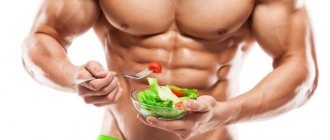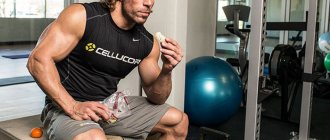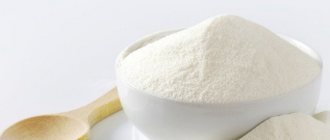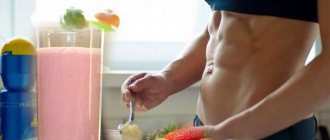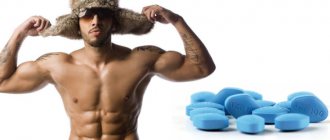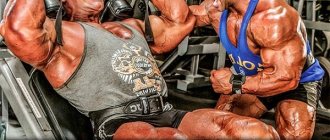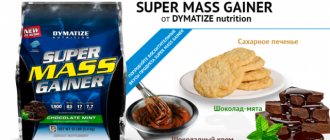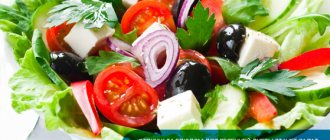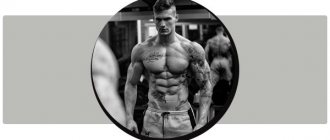Article by: Fitness Guru
We know the answer to this question! Every weight training enthusiast knows that protein is the most important thing. At least 2 grams per kilogram of body weight. This is the basis! What else? Most experts believe that protein needs carbohydrate support. At the same time, there should be at least twice as much carbohydrates in the diet as proteins. Carbohydrates provide the energy needed to turn protein into muscles. At the same time, they bind a lot of water inside the muscle tissue, which causes the muscles to gain additional size. What about fat...? How much fat do you need? And what kind of fat?
Athletes strive to limit calories. A diet that is too high in energy promotes fat storage, and we can't afford fat around our waist. Fats are the most calorie-dense components of the diet, providing twice as much energy as carbohydrates. Some advocate limiting fat intake to the necessary minimum. This minimum is necessary because some fat components are necessary for us to live. What do other sources say...? They recommend minimizing carbohydrates, almost completely replacing them with fat. But even here there is not always unanimity; Some argue that saturated animal fats are best, others for unsaturated fish and vegetables.
Muscle growth - what you need
Flowers grow if they are well watered. But this is not enough. They still need fertilizer, a lot of light, loose soil, the right temperature and much more. The same is true with the muscles of the body. The body needs stress: lifting weights, strength exercises. The main thing is that the exercises strain all muscle fibers to the limit. This could be a bench press with a weight that we could lift 5-7 times
But along with the stress, it is important to eat right. Let's see what to eat to grow muscles
Muscle growth will only be ensured by frequent meals, at least 5 times a day. You can easily snack on fruits and dairy products, but the main meals are breakfast, lunch and early dinner. Moreover, the main meal of the day is breakfast. It may include: oatmeal, banana, low-fat cottage cheese and kefir. To calculate the required amount of protein and carbohydrates for the day, you can contact a sports nutritionist. He will approach this issue individually and explain when and how much protein and carbohydrates should be consumed in order for it to be beneficial.
Serving sizes
There is always a debate about portion sizes. Since the diet should include not culinary products and smoked meats, but high-quality products, the portions will be larger than usual. It is better to increase the serving size gradually, monitoring your feelings
It is also important to prepare food correctly and be able to combine it so that the digestive system functions fully. What should you eat to grow muscles? Boiled chicken breast, or in the form of cutlets, as well as any fish, are very well digested. The building materials for muscle growth are: various cereals, scrambled eggs and, of course, dessert
List of useful products
So, let's look at specific foods that will show you what you need to eat to grow muscles.
Eggs can be up to 5 pcs. per day, only without yolks, because Yolks contain a lot of fat and cholesterol. And pure protein, rich in amino acids, is better absorbed if you add 1 yolk.
Dairy products include cottage cheese, cheese, kefir, and milk, but with minimal fat content.
Fish and any seafood are simply necessary in the diet. Don't be afraid to eat fatty fish. The fat it contains is not only healthy, but will also help you get rid of harmful fat and improve your health.
Don't forget about boiled and baked potatoes, black bread, pasta made from dark flour, oatmeal, rice, buckwheat, and pearl barley. Green vegetables are very useful - spinach, broccoli, green beans, lettuce, parsley.
As for dessert, it remains useful only for those who have difficulty gaining weight. In your case, dessert is recommended after every meal. This could be a low-fat cheese mixture with fruit or a cottage cheese casserole.
Don't eat "everything"
You won't be able to gain muscle mass if you eat chips, loaves, cakes, smoked and spicy foods, and fried foods. Earlier we already noted what to eat to grow muscles. But now let's look at the products that it is advisable to exclude from your menu.
Let's start with sweets. Avoid the following foods: candy, jam, chocolate, sweet drinks with sugar, ice cream, cookies, pastries, cakes, baked goods. It is better not to consume saturated fats and dishes made from white flour and sugar.
For muscle growth, cook healthy foods. Use boiling, grilling, steaming. If you fry, do it only in a frying pan with a Teflon or non-stick coating, using olive oil or without it at all.
And at the end, a small but simple secret! Consume 20% more calories than you expend and eat more protein (about 2-3 grams per kilogram of body weight). And also, along with good nutrition, get enough sleep, otherwise it’s foolish to hope for muscle growth.
https://youtu.be/pbhFGwsmEb4
Nutrition for intensive muscle gain
For muscle growth, proper nutrition is no less important than sports training. A diet for muscle mass must be designed perfectly, otherwise you may end up with the exact opposite result. Everyone has heard that for each person it is necessary to individually calculate the number of daily calories consumed. Features such as age, gender, height affect this figure. However, not everyone knows when and what to eat. How to eat right to gain muscle mass? Let's look at this point in more detail.
Eating before training
As you already understand, pre-workout nutrition begins early in the morning after waking up. And it's a more important meal than the one before your workout. Ask why? Your body was fasting for 8-10 hours before breakfast, and eating after a workout is eating after a 2-3 hour fast.
After sleep, the body experiences a much greater deficit than after training. To awaken the body, drink water or liquid carbohydrates and after 15-30 minutes eat solid carbohydrates and proteins. It can be potatoes or porridge with meat, eggs - to your taste.
Now about eating immediately before the workout itself.
It is usually not recommended to eat food immediately before physical activity. Because during training, blood will flow from the muscles to the stomach. But is this really so? Yes and no. If you eat a solid meal consisting mostly of protein an hour before your workout, your body will have a hard time, in addition to lifting weights, it will need energy to digest the food.
But on the other hand, any meal leads to the release of insulin (a transport hormone) into the blood, which increases blood flow to the muscles, and with it an increased flow of oxygen, micro and macroelements, amino acids and other nutrients. In other words, eating before exercise increases protein synthesis in muscles.
In 2001, scientist Tipton and others conducted an experiment designed to determine how much protein synthesis improves during training after eating a liquid meal (a protein-carbohydrate cocktail).
It turned out that eating liquid food before training increases protein synthesis by at least two times. They also conducted an experiment of this kind after training and came to the conclusion that protein synthesis is less than if you take liquid food before training.
Conclusion: Immediately before training, it is not only possible, but necessary, to consume liquid, easily digestible food to improve protein synthesis.
This could be a gainer or a protein shake. You can use fast carbohydrates, such as chocolate.
And if you want to lose weight, on the contrary, check out the healthy diet menu for weight loss.
And now I won't talk about apples
We'll talk about ginger. I have thinly sliced ginger, pickled ginger in my hands. Chopped ginger root is placed in vinegar brine and soaked in it. He's probably familiar to you. This piece (in my hands) is whiter, but you definitely remember the pink version that is served with sushi.
This stuff is so powerful that I am now a big fan of it and have included it in my daily morning routine (i.e. breakfast). I put it on egg whites. I know it may sound a little off-putting, but I assure you, it is very, very useful.
Perhaps someone does not like its taste, so they need to get used to it due to the presence of bitterness. But if you are able to eat it, then I have good news for you - your stomach will also thank you because ginger helps digestion.
Remember the good old recommendations to drink ginger ale if you feel bad. Although I can tell you with confidence that there is not much ginger in ginger ale, so it will not help you fight nausea very much (even though such advice was given with only the best intentions). So, let's leave everything as it is.
I also wouldn't recommend you eat the candied version of ginger. Because in this case, again, something that was good in itself was taken and turned into something really bad. In each case, you get less ginger and more sugar and other substances that will not help you with what we are trying to achieve here.
When it comes to training, one of the most important properties of ginger is its ability to help with inflammation and delayed onset muscle soreness.
Essential Foods to Eat When Building Muscle
But what exactly should you eat to make your muscles grow significantly?
Here is a list of the main products that you need to add to the menu if your goal is sculpted muscles:
- Ground beef;
- meat broths (no more than 400 grams per day);
- chicken and turkey (boiled, without skin);
- fish (boiled, baked);
- eggs (boiled, but no more than 1-2 yolks);
- vegetables (cucumbers, all types of cabbage, green peppers, radishes, zucchini, celery, etc.);
- potatoes (boiled);
- fruits, especially grapefruit and lemon;
- dried fruits;
- bananas;
- strawberry;
- orange juice (preferably freshly squeezed);
- cottage cheese and dairy products;
- oatmeal;
- rice;
- pasta;
- grain bread (not rich yeast bread);
- legumes
Vegetable oil should be added to salads.
How to gain muscle mass for a teenager?
Many teenagers dream of having a beautiful body and defined muscles. They go to the gym, but soon become disillusioned with their workouts because they don’t see the results of their work. What is their mistake and how can a teenager gain muscle mass?
Quite often, young people prefer fast carbohydrates and high-fat foods, while protein and fiber remain forgotten. Typically, their problem is that they don't think about how to eat right to gain muscle mass. It should be remembered that it is especially important for thin teenagers to eat regularly, at least six times a day in small portions. Without such a diet, after starting strength training, regression is possible - even greater depletion of the body.
Children under 14 years of age are not recommended to engage in strength training without the guidance of an experienced trainer. It must be taken into account that the body is still growing, and incorrectly performed exercises can injure the joints and spine. Particular attention should be paid to sports nutrition and vitamin intake. This approach will allow the body not to waste resources necessary for growth on restoration of strength.
Healthy foods
We figured out what vitamins and nutrients our hair needs to keep it healthy and growing well. Now let’s find out what foods we should eat so that our hair will please both us and those around us.
Meat
Beef and pork are rich in protein, which our hair needs for active growth, and turkey and chicken also contain iron, which strengthens hair follicles.
Fish
Fish is a source of protein and essential amino acids. In addition, red varieties of fish (for example, trout, salmon, salmon) are rich in vitamin B12 and zinc, which has a beneficial effect on hair growth.
Eggs
In addition to valuable protein, eggs contain phosphorus, calcium, potassium, and B vitamins, which directly affect hair growth and ensure its health.
Milk and cottage cheese
Protein foods that are rich in calcium and iron. Regular consumption of dairy products allows the hair to receive nutrition from the inside and grow quickly.
Hard cheese
The protein found in hard cheese is better absorbed than milk protein. In addition, the cheese contains calcium, phosphorus, various minerals and vitamins (B12, C, E, PP, A, B1 and B2, E).
Bran
This product is rich in B vitamins, fiber, vitamins A and E, and minerals (selenium, magnesium). These substances stimulate metabolic processes in the body, nourish hair follicles, making hair thick and strong.
Nuts
Various types of nuts are rich in protein. In addition, they contain many vitamins (B6, B10, biotin), which ensure normal nutrition and hair growth. Nuts contain alpha-linoleic and omega acids, which are essential for hair growth and shine.
Apples
These fruits are a storehouse of vitamins that our hair needs. They contain vitamin A, PP, C, calcium, phosphorus, potassium, magnesium, sodium, iodine, iron. All these vitamins and minerals strengthen the hair follicle and stimulate hair growth.
Carrot
This vegetable is rich in vitamins A, E, iron, zinc, biotin, and B vitamins. Regular consumption of carrots will speed up hair growth and make it stronger and healthier.
Butter
Contains a lot of vitamin A and protein. In addition, butter is rich in minerals, vitamin D, carotene - these substances are necessary to nourish the hair from the inside.
Oatmeal
This cereal contains vitamin E, zinc, B vitamins, as well as sulfur necessary for hair. This helps strengthen and restore hair, make it strong and accelerate growth.
A balanced, varied and vitamin-rich diet will help make your hair strong and healthy, and also strengthen your entire body. By replacing fast foods, processed foods and sweets with meat, cereals, vegetables and fruits, you will get thick, shiny hair and a well-functioning head in return. Take care of yourself!
https://youtu.be/X3C_95qPaZI
Therapeutic nutrition for phenylketonuria - basic principles of diet
There is a misconception that diet only helps with diseases of the gastrointestinal tract. In fact, strict restrictions and shifts in the balance of the diet in favor of a certain type of food are prescribed by doctors for many pathologies.
Read more >>
Diet for weight loss - table of allowed foods
Many people who want to lose excess weight try to do it in the shortest possible time. Of course, you want to get your body in order in a few days, but this approach to solving the problem often leads to the opposite results - the lost kilograms are returned with a reserve.
Read more >>
Olga Smirnova specially for pitanie-club.ru July 02, 2014
Sports nutrition
Sports nutrition for muscle mass is known to all athletes. Usually people do not get enough vitamins and microelements from their usual foods. And restricting the diet during training leads to the fact that the body takes the substances it needs from the resources intended for its own muscles. There is no need to be afraid of sports nutrition and believe legends about the harmful effects of taking it. It is generally manufactured from the best products using top class equipment. Let's look at what types are needed and how to eat them correctly to gain muscle mass.
What food should you eat to grow muscles Ramblerzhensky
What foods should you eat to keep your muscles growing and testosterone levels high? A simple nutrition strategy for quickly gaining quality lean mass.
What to eat to grow muscles?
Muscles grow only when the amount of energy received in the form of calories from food exceeds the amount of energy expended for training and general life activities. If you want to get pumped up, then you need to eat at least 15-20% more calories than your daily requirement.
At the same time, the quality and composition of food also play a crucial role in gaining weight - it is naive to believe that sausages are the optimal source of protein, and that pizza and daily fast food, literally filled with empty calories, will grow muscles, and not belly fat.
The effect of nutrition on hormone levels
It is also important that food itself has a direct effect on the body’s hormonal levels, which also affects the rate of muscle growth. Proper and vitamin-rich natural food increases the level of testosterone, the most important male hormone, and incorrect food significantly lowers it
Research suggests that eating too much protein has a negative impact on testosterone—in other words, you don't need to eat a lot of meat to grow muscle. In fact, a variety of complex carbohydrates (cereals and other grains, vegetables, fruits) are in many ways more important for gaining muscle mass.
What foods build muscles?
On the one hand, animal products and meat contain amino acids important for muscle growth. On the other hand, without carbohydrates, the body will not be able to replenish glycogen reserves, the main source of energy for muscles. Fats, in turn, are important for metabolism and hormone synthesis.
Nutrition for muscle growth is first and foremost a varied (and cheap) diet that you can afford on a regular basis. A single purchase of an expensive sports supplement or a small pack of “fashionable” cereals (for example, quinoa) will not fundamentally change the situation.
Menu for muscle growth
By consuming an increased amount of calories, you must eat right, otherwise you will begin to gain more fat rather than muscle. The basis of your diet should be a variety of cereals (primarily rice and buckwheat), as well as quality meat, fish, chicken, eggs and dairy products.
Limit your consumption of white wheat flour (from pasta and bread to baked goods), sugar and sweets, giving preference to cereals and green vegetables (green beans, broccoli). A detailed nutrition menu for gaining muscle is given in our material “Beginner’s Guide”.
How many times a day should you eat?
For muscle growth, it is better to eat 5-6 times a day - a hearty breakfast, a small snack before lunch, a hearty lunch, a snack or protein shake, a light early dinner, and then a full dinner. With a classic diet 2-3 times a day, you will have to eat huge portions, which will impair the absorption of nutrients.
After training, the protein-carbohydrate window opens, when nutrients from food primarily go towards muscle growth and restoration. For rapid weight gain, it is important to eat both 2-3 hours before training (this will give energy for training) and 2-3 hours after it ends.
Lean Mass Gain Strategy
The body always increases weight due to the simultaneous growth of both muscle and fat. If mesomorphs are lucky and will gain 0.2-0.4 kg of fat per kilogram of muscle, then for endomorphs everything may be the opposite - for them, gaining 1 kg of fat for every kilogram of muscle is not the worst option.
An increase of 400-600 g per week is considered optimal. If your weight increases more slowly, feel free to increase your caloric intake; if you gain more, reduce it, since weight gain is most likely due to fat mass. Typically, athletes first gain general mass, and then cut and burn fat.
Is it possible to get pumped up without supplements?
Taking sports supplements does not automatically guarantee muscle growth - even the most expensive ones rather make it easier to replenish the body with calories. For example, immediately after strength training, muscles need nutrition - it’s easier to drink a portion of gainer or protein than to eat a portion of chicken and rice.
The only sports supplement proven to increase body weight is creatine, which can help you gain up to 3-4 kg in the first month. However, weight gain in this case will occur primarily due to an increase in fluid in the body, and stopping taking creatine will return the weight back.
The first rule of nutrition for rapid muscle growth is to consume 20% more calories than the daily requirement. The second rule is a diet from a variety of sources of complex carbohydrates and natural vitamins, and not an emphasis on meat foods or sports supplements.
Nutrition during training, what should you eat?
A lot of people don't pay attention to nutrition, but it is very important if you want to train and build good quality muscle definition. So you need to eat to grow muscles, let’s talk about that now.
Everything seems to be clear and understandable. Eat a lot and train, but we don't want to turn into big weightlifters or powerlifters, so we'll look at balanced and proper nutrition to gain lean muscle without fat.
One great muscle-building food is protein. This is the basis of construction and what our muscles largely consist of.
Proper nutrition after training
As experiments have shown, the post-workout window during which nutrients are better absorbed opens plus or minus for 24 hours.
That is, after training, you need to consume plenty of proteins, fats, carbohydrates and vitamins and minerals within 24 hours. Minerals and vitamins themselves do not directly affect muscle growth. They act as catalysts, their task is to stimulate the processes of conversion of proteins and other nutrients into muscles. That is, after finishing your workout, you can drink water, preferably mineral water, to restore the loss of water and minerals during the workout. And then at home after an hour or two, calmly eat carbohydrates, for example, potatoes or rice along with proteins (eggs, meat) and it would be nice to add vegetables.
Second meal after training
As you understand, 1 - 2 hours after finishing your workout you should have a full meal. That is, the diet should consist of proteins and carbohydrates to restore energy. After 1-1.5 hours, you should already have a second meal after training, which should consist mainly of proteins, especially if it’s getting close to night. That is, the diet should consist of: cottage cheese, eggs, possibly chicken, but it’s better not at night, milk, a protein shake. Everything is to your taste and pocket size.
Attention! If there are still 2-3 hours before bedtime after the second meal, then you will need to eat again
Eating before bed
Scientists advise taking liquid foods. It could be a protein shake. It is quite possible to eat casein protein at night. Or take 150-200 grams of low-fat cottage cheese, it essentially contains casein. This way you will help recovery and protein synthesis. Plus, the body needs energy to warm the body during sleep, maintain breathing functions, and so on.
Why do you need to eat at night?
- Well, firstly, the body needs energy, as described above.
- Secondly, for growth it is necessary to constantly maintain the predominance of energy consumption over its costs. That is, in order for muscles to grow, we need to receive more energy than we expend. And as you understand, at night we also waste energy.
There are two ways out of this situation:
Eat every 2-3 hours, for this you need to wake up at night, eat and then go to bed. This is an option for bodybuilding fans. Not very suitable for ordinary people. Take a sufficient amount of food before bed that will take a long time to digest. Carbohydrates are not suitable for us, since there is a risk that carbohydrates will be stored in fat. But slow proteins, for example, casein from cottage cheese, are an excellent option. It will be gradually released and provide our body with building material for muscles
By the way, this is important because the most intensive restoration and growth processes occur precisely when we sleep.
Next, you need to eat plenty of food throughout the day. If your goal is to gain muscle mass, then you need to consume more calories than you burn per day, otherwise there will be no growth. More precisely, it will not be as effective.
Eating after waking up
Breakfast is the most important part of the daily meal. Some sports nutritionists recommend eating 50% of your daily diet in the morning. For example, this was described in the book by M.V. Aranson “Nutrition for Athletes.” Read it, a very useful book. So the food you eat in the morning nourishes your body throughout the day. American scientists have concluded that people who do not eat breakfast in the morning are more likely to suffer from heart disease. In addition, before breakfast, your body fasts for 6-10 hours. In addition, the liver works better in the morning.
To make your stomach work better, that is, “wake up,” drink at least 250 ml of water immediately after waking up. It is advisable to go to the toilet in the morning. To cleanse the intestines of the products of the past day and prepare it for work. This way you will have less toxins deposited.
Additionally, you need to pay attention to the composition of your body. If you are thin, then feel free to load up on carbohydrates; if there is an excess of fat, then it is better to increase your caloric content through proteins
Don’t forget to eat polyunsaturated fats of plant origin, such as olive oil, or better yet, flaxseed oil. As well as fish oil, it contains omega-3 fatty acids, which are involved in metabolic processes. It is better to limit animal fats, but you should not completely abandon them either.
Carbohydrates
An excellent source of energy. For those who want to eat healthy to gain muscle mass, it is necessary to include a sufficient amount of carbohydrates in the menu. However, you need to remember that only complex carbohydrates will be useful - cereals, durum wheat pasta, fruits, bran. These foods digest slowly, providing us with energy throughout the day. Various sweets, buns and carbonated drinks instantly increase insulin levels, stimulating even greater appetite. Of course, fast carbohydrates are not a diet that can be recommended for gaining muscle mass. Their quantity will have to be limited or eliminated from the diet altogether.
You can easily consume complex carbohydrates in the first half of the day. You can eat more of them in the morning and less in the afternoon. After 18 hours, you should completely forget about foods high in carbohydrates, since without sunlight they will not be absorbed by the body, and excess food will go straight to fat.
Eating Before or After Workout
There is a big difference between when and how to eat. The same food eaten before and after training can lead to different results.
The main law of nutrition when building muscles is that the amount of energy received from food must exceed the amount of energy consumed by the body during training. Yes, the diet works here in reverse: when we try to reduce calories to lose weight, then to increase muscle mass we need to increase the calorie content of food consumed.
Despite the fact that the basis of nutrition for muscle building is proteins - a building material. In total, they should make up no more than 35% of the diet. The main part of the diet still consists of carbohydrates - 60%.
Here we should make a digression - that for “drying” (when you need to quickly lose weight and show muscle definition), for example, during competitions, this balance is temporarily swapped. Those. temporarily proteins become a priority. But such nutrition is very limited in time. Eating like this for a long time is harmful, even dangerous to health.
The most important meals are in the morning for breakfast and after training.
Read more about proper nutrition in the materials “Proteins, fats, carbohydrates: their role and use in the body’s energy system” and “Training and nutrition: the main mistakes of novice athletes.” We wrote about healthy food in the article “Vitamins, minerals, microelements in food” and “Vitamins and minerals in the diet of beginning athletes
Morning
It is recommended to consume about 20-30 g of protein within an hour of waking up. Boiled eggs in the morning are very good (the portion is approximately the following: one whole egg and two egg whites) or protein shakes.
Before and after training
It is best to eat an hour to an hour and a half before training. A sandwich made from wholemeal bread with meat or chicken is suitable for a pre-workout snack. If this is not possible, it is recommended to eat an apple and drink a protein drink half an hour before training.
But the main thing is nutrition immediately after training.
It is nutrition after training that becomes the basis for increasing body weight. After training, proteins and carbohydrates are completely absorbed. And everything you eat will go towards recovery and muscle building.
It is important that you consume food as early as possible, preferably in the first twenty minutes after training. Fats should be almost completely eliminated, because
they will also be learned, but this is not necessary.
Therefore, it is important to watch what you eat. Most trainers recommend taking special protein sports nutrition
You can also consume egg whites (ready-made), but remember that yolks contain a lot of fat, which slows down the process of protein absorption. Therefore, separate the yolks from the whites. By the way, egg white is absorbed almost completely by the body. This contributes to a sharp increase in protein formation in muscle fibers
Most trainers recommend taking special protein sports nutrition. You can also consume egg whites (ready-made), but remember that yolks contain a lot of fat, which slows down the process of protein absorption. Therefore, separate the yolks from the whites. By the way, egg white is absorbed almost completely by the body. This contributes to a sharp increase in protein formation in muscle fibers.
It's very important to drink. It can be plain water, or better yet, freshly squeezed juice.
Therefore, you can often see bodybuilders or powerlifters drinking juices after training almost in the locker room.
A more substantial meal can be an hour to an hour and a half after training. It could be:
- lean meat,
- egg whites with a side dish of rice or pasta.
Metabolic speed is an important factor in acquiring the desired shape and volume. Read more about accelerating metabolism in the articles “The Role of Metabolism in Weight Loss and 19 Fat Burning Products” and “11 Ways to Speed Up Metabolism. We are losing weight without stress!
Excess fat
In general, excess fat stored in muscles is detrimental to muscle mass. The anabolic response of muscle (via mTOR kinase) to resistance training and the level of muscle mass development were inversely correlated with the concentration of fat in muscle fibers.
But the antidote to the harmfulness of palmitic acid for muscles is created by omega-3 and 6-series polyunsaturated fatty acids. Contained in fish oil and oilseed plants, respectively. They activate the mTOR kinase signaling pathway and inhibit muscle atrophy resulting from the harmful activity of palmitic acid in muscle cells. Omega 3 and 6 acids have been shown to support the development of muscle mass and strength in many experiments using isolated muscle cells and animal studies. This was later confirmed by studies involving people, including athletes.
However, conjugated linoleic acid (CLA) reduces myostatin levels in muscle cells. It increases muscle mass, suppresses muscle atrophy as a result of aging muscle tissue or chronic exacerbation of the disease. In strength training, they demonstrate synergism with creatine and help improve athletes' preparation for the bench press.
Conversely, medium-chain saturated fatty acids are most often consumed by athletes in the form of coconut oil or MCTs. They are androgen receptor agonists or an alternative to testosterone and its derivatives - anabolic steroids. At the same time, caprylic acid has the strongest effect, making up 65% of the mass of MCT. MCT supplements lead to reductions in fat and muscle mass and strength.
Often supplemented by athletes in the form of lecithin, phospholipids, especially phosphatidic acid and phosphatidylserine, increases the activity of mTOR kinase, limits the activity of myostatin. Which causes the development of the myogenic muscle process, and is used in strength training programs to maintain muscle mass and strength.
An example of an ideal daily diet for an athlete
If you don’t know where to start when creating your own sports diet, follow the example of leading athletes! You can also consume natural protein shakes and nutritious fiber. Products of this type have nothing to do with synthetic growth hormones and are sold in any licensed sports nutrition store.
- Breakfast (8.00-10.00): omelet of several eggs with vegetables. It is possible to add black or whole grain bread to it. 1/3 can canned sweet corn or green peas. If you have the opportunity to “get” fresh produce, do it. Complement your hearty breakfast with delicious fruit. It could be a slice of melon or watermelon, an orange, a pear, an apple. You can drink black or green tea without added sugar (replace it with natural honey), as well as coffee with the addition of low-fat milk.
- Second breakfast (11.00-13.00): a handful of nuts or dried fruits, a sandwich of black grain bread with cheese or low-fat ham. You can wash down the snack with low-fat kefir, milk, juice or smoothie.
- Lunch (14.00-15.00): a plate of thick meat soup, steamed vegetables (broccoli, cauliflower) with a large piece of baked chicken or fish. The meal can also be supplemented with legumes, such as beans. Be sure to eat a fortified vegetable salad with celery, tomatoes, cabbage and cucumbers. Wash it down with juice or unsweetened compote.
- Dinner (20.00-21.00): rice or buckwheat porridge, fish (you can eat canned tuna). Supplement your dinner with fruit (pear, apple, orange) and green tea, which is famous for its antioxidant effect.
When choosing a sports diet for yourself, try to build on your own preferences, and be sure to take into account the time of the workout. We recommend that you exercise after lunch or in the evening.
https://youtu.be/n_VnMx6Hcf8
Tip #1
To grow muscle mass, you need to consume 1.5-2.5 grams of protein per 1 kilogram of your weight every day. For example, your weight is 75 kg, which means you should include 112.5-187.5 grams of protein per day in your menu. Good sources of proteins are: chicken fillet, pollock fillet, turkey, beef, fish and seafood. You can eat fatty fish, but try to eat other lean meats every day. Eat egg whites and 1-2 yolks per day (no more). These proteins contain all the essential amino acids. Animal proteins are essential in your diet. Choose dairy products and cottage cheese with a fat content of 0.5, this will allow you not to gain excess fat deposits in the body, and you will look athletic with a minimum amount of fat in the body. Additionally, include plant-based proteins (nuts, legumes) in your daily diet. We've sorted out healthy proteins, now you'll learn about unhealthy foods that contain little protein, a lot of fat and excess carbohydrates (flour, starch) - it's advisable to avoid them altogether. These include: sausages, dumplings, sausages, cutlets, etc.
Watch the video
What to eat to grow muscles?
A thin, shy, unsure of himself, with a sickly appearance, a boy walks down the street. Who will pay attention to him? Perhaps some grandmother, for sympathy and giving specific advice. And that's not the main thing. What is important is not the muscles “walking” through the body, but a strong figure, a confident step and internal consistency of word and deed. For those who find it difficult to gain weight and strengthen their muscle structure, let's look at what to eat to grow muscles. Choose an individual diet for yourself.
Tip #3
To absorb your daily calorie intake, you need to eat 4-5 times a day, every 3-4 hours and 3 hours before bedtime. The time can be as follows: 08:30, 12:30, 16:30, 20:30, adjust it to suit you, taking into account work, study and other matters. You understand, if your menu contains 3000 calories, you won’t eat them in 2 or 3 meals. Therefore, 3000 calories can be divided into 5 meals of 600 calories each, and this is more plausible and realistic. Every time before meals, drink 200 ml of water, and you will get 1 liter per day. The norm is 1-2 liters of clean drinking water per day. With an intense daily routine or heavy training, this water norm increases to take into account thirst. To gain muscle mass, you do not need to starve, because this is very harmful. It is necessary to maintain the body's metabolism at a high level so that food is absorbed and excess fat is not deposited. Try to make your diet varied every day so that you have a good appetite, because muscles require a lot of useful substances - proteins, fats, carbohydrates, vitamins, minerals, etc.
